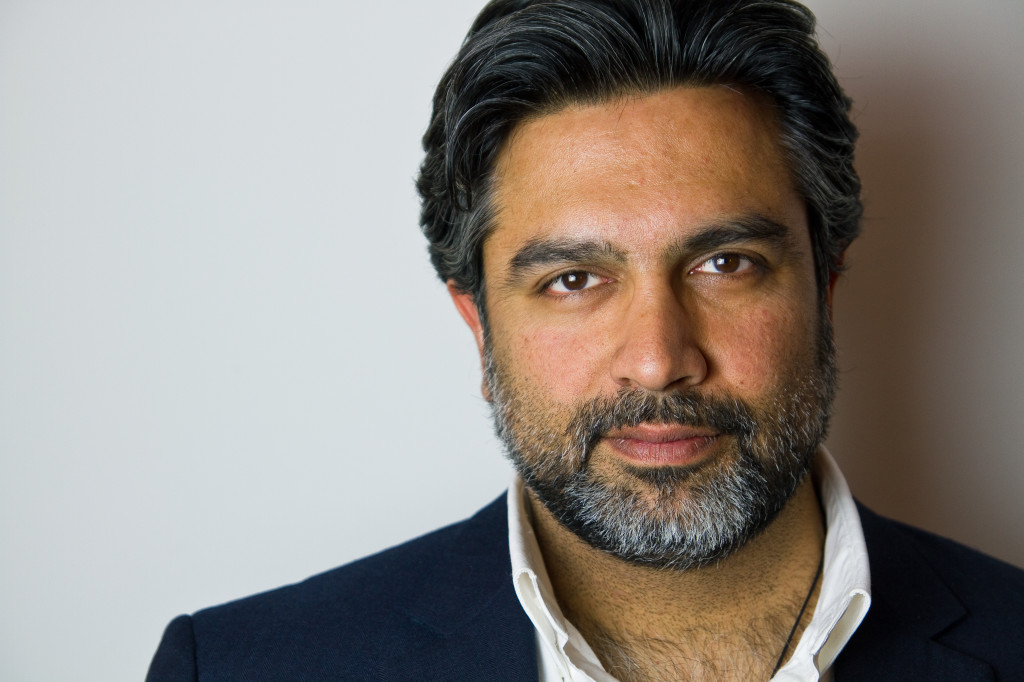IRI Names New Deputy Director
Haresh Bhojwani has been appointed to be the Deputy Director of the International Research Institute for Climate and Society, part of Columbia University’s Earth Institute. He will coordinate IRI’s connections with development and humanitarian organizations so that IRI’s research can target the needs of those vulnerable to climate impacts, especially through the institution’s international collaborations.
“Haresh has helped IRI transform itself and has fostered strong relationships with development organizations,” says IRI director Lisa Goddard. “These relationships have positioned us to fulfill our mission to improve people’s lives and livelihoods in areas of the world plagued by recurring droughts, and floods and extreme weather.” In his previous roles as IRI’s International Development Officer and more recently, as Director of International Partnerships, Bhojwani worked to ensure the institution’s ideas and approach about climate risk management and adaptation left their imprint on key global discussions such as the World Climate Conference-3 . IRI was recognized as an important international institution by the conference’s International Organizing Committee. Under this designation, Bhojwani was able to participate in the two-year planning process leading up to the conference, which ultimately developed the Global Framework for Climate Services. He also played an important role in organizing the International Conference on Climate Services and establishing the new Climate Services Partnership.
Efforts such as these have helped convince major development organizations that IRI and its research scientists are effective partners that can help them achieve their development objectives in the face of climate variability and change. “As USAID and other agencies direct increasing attention to addressing climate change impacts, it is critical that the development and climate science communities understand each other,” says John Furlow, a climate change specialist at the U.S. Agency for International Development. “Haresh has played a great role in facilitating that communication and helping us move toward a model of collaborative learning.” The agency has asked IRI to develop a range of new climate services to inform its decision making and help vulnerable communities anticipate and effectively respond to droughts, floods and other climate-related impacts.
At Columbia University, Bhojwani will work with Lisa Goddard on connecting IRI’s climate-related work to other units of the Earth Institute, such as the Columbia Water Center, the Agriculture and Food Security Center, the Center for Research on Environmental Decisions and the Mailman School of Public Health. “Haresh has the rare ability to see what IRI scientists could bring to a problem and explaining so that funding partners can see it too,” says Mark Cane, G. Unger Vetlesen Professor of Earth and Climate Sciences at Columbia University, who was instrumental in founding IRI.
Prior to joining IRI in 2005, Bhojwani worked on issues of economic development and environmental conservation in Latin America – managing a network of sustainable development organizations in the Andean region under the banner Tropical Nature. He has represented human rights victims in Europe, Central America and the United States and has worked in indigenous and land rights in Latin America and the USA. He received his J.D. from Marquette University Law School and his B.A. from the University of Wisconsin-Green Bay.
“IRI is helping to solve problems that have beleaguered societies for centuries,” says Bhojwani. “We are a unique institution whose ideas and approach on helping society better cope with climate impacts continue to gain traction around the world. I will work to strengthen the dialogue between the scientific, development, climate change adaptation and humanitarian communities.”


You must be logged in to post a comment.